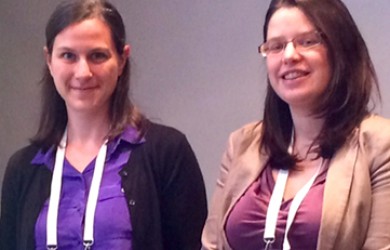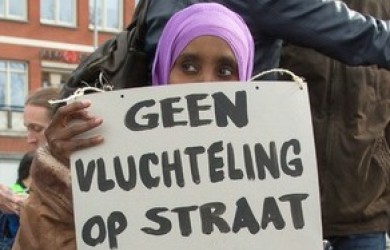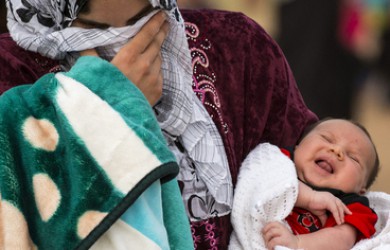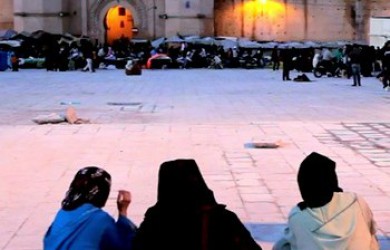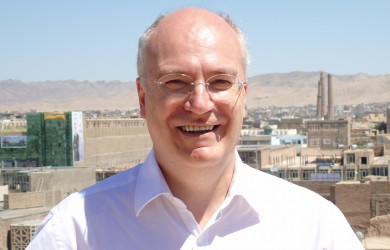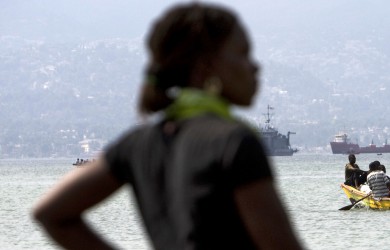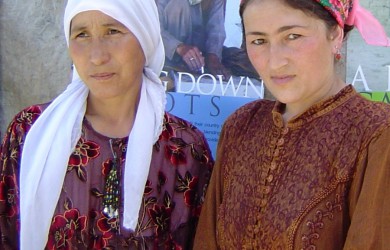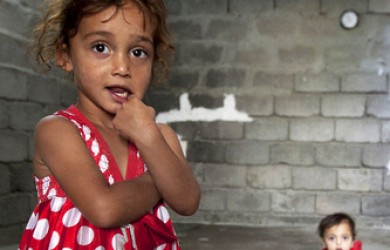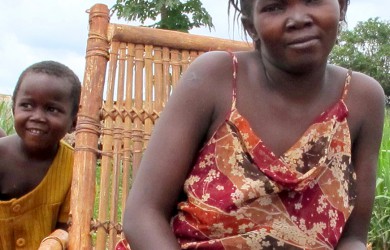- ABOUT US
- RESEARCH
- EDUCATION
- The Graduate School
- PhD Programme
- MSc Programmes
- Capacity Development
- News
- Design and Evaluation of Public Policies (DEPP)
- Design and Evaluation of Innovation Policies (DEIP)
- Evidence-Based Policy Research Methods (EPRM)
- Migration Management Diploma Programme (MMDP)
- Moving the Migration Policy Agenda Forward (MMPAF)
- Online Courses
- Short Courses (Masters)
- Tailor-made programmes
- UNU-MERIT, ITU Academy Training Centre
- Alumni
- Academic Funding
- NEWS
- EVENTS
- PUBLICATIONS
- LIBRARY
Global Forum on Migration & Development 2015
22 October 2015
The war in Syria has forced tens of thousands to flee their homeland, many across the Turkish border. In turn, the EU and Turkey are holding urgent talks to channel these flows. Meanwhile migration looms large on the international agenda, in particular for the UN’s new Sustainable Development Goals and in general for international labour policies. Our researchers focused on all these issues at the Civil Society Days of the Global Forum on Migration and Development (GFMD), held in Istanbul in mid...
Continue Reading →Empower Local Communities to Ease the Refugee Crisis
19 September 2015
The ‘refugee crisis’ has only troubled faces. The war and destruction in Syria and Iraq make people put their destinies in backpacks. They leave all their belongings behind and hope for a new future in a faraway country mostly only known from the illusions created by TV and movies. Imagine what would force you to take such a step. When would you pack? The other face is that of the new neighbours in the receiving country – mostly in low-cost housing and with modest or low incomes – who wake up in...
Continue Reading →The Mediterranean Crisis: An Open Letter to World Leaders
08 September 2015
Prof. Parvati Nair, UNU-GCM: United Nations University, Barcelona A child should not have to die to mobilise goverments into credible action. The photograph of three-year-old Alan Kurdi’s body washed ashore, which has mobilised international responses to the ongoing migration crisis in the Mediterranean over the past week, signals two inter-related tragedies: firstly, that of the human loss and suffering that is ongoing in this context, and secondly, that of the dire shortcomings of global and r...
Continue Reading →Migrant Targets: Asylum Shelter or Overseas Development?
08 September 2015
The Dutch development aid budget has fallen dramatically in recent years. In 2013 the Dutch Government stopped respecting the 0.7% norm, pushing through large budget cuts on development aid cooperation. The allocation of development aid is also more and more scrutinised, and one of the more controversial expenses is the first-year shelter of asylum seekers. According to OECD guidelines, shelter expenses can be paid from development aid budgets, but some countries choose otherwise. The Dutch used...
Continue Reading →World Refugee Day, 20 June: New Highs, New Flows
18 June 2015
There are now 59.5 million refugees worldwide, according to the latest figures from UNHCR. Ahead of World Refugee Day, 20 June 2015, we assembled a roundtable of experts — Prof. Ronald Skeldon, Dr. Melissa Siegel, and Dr. Katie Kuschminder — to put the major issues in perspective: from Myanmar to the Mediterranean, statelessness to child refugees. Below is an edited transcript and various media drawn from the roundtable, which was moderated by Howard Hudson. In 2012, UNHCR said there...
Continue Reading →Displacement, Refugees & the New World Disorder: Seminar
26 May 2015
In a seminar on 26 May 2015, Ewen MacLeod, Head of the Policy Development and Evaluation Service (PDES) of the UN Refugee Agency, focused on the impact of emerging global trends – population growth, climate change, urbanisation, and migration – on current arrangements for the management of forced displacement. MacLeod highlighted the changing nature of war, conflict and violence since the end of the Cold War as an explanation for the growth in internal displacement and protracted refugee situati...
Continue Reading →Let Their People Drown: The EU’s Self-inflicted Migration Drama
29 April 2015
Twenty-five years of European border restrictions have not only failed to curb immigration but have actually had counterproductive results — through an increase in irregular migration and an increasing dependence of migrants on smugglers, argues Prof. Hein de Haas. In recent months, a record number of refugees and migrants have drowned in their attempts to cross the Mediterranean Sea. According to recent UN estimates, in 2014 almost 220,000 migrants crossed the Mediterranean, and at least ...
Continue Reading →Higher Education: A Key Development Need for Refugees
03 July 2014
In our third blog post for World Refugee Day, we learn why higher education is important to refugees and why this kind of provision deserves greater political and academic attention. World Refugee Day marks a global recognition of those who have been forced to leave their homes to find sanctuary abroad; a day when individual citizens and the international community reaffirm their support for resolving protracted conflicts and advancing the situation of refugees. Yet, it is only in the last decad...
Continue Reading →Refugees, Returnees & Transnational Families
24 June 2014
While the ISIS insurgency creates new flows of refugees, rejected asylum seekers and Kurds with European passports continue to return. Five very different encounters in Iraqi Kurdistan in the last week illustrate the contradictions and complexities of migration. This is our second blog post in a series for World Refugee Day. The humanitarian and the researcher On the plane to Iraq, where I will interview rejected and returned asylum seekers, I meet my former employer. As the director of an NGO f...
Continue Reading →Refugees Deserve More than One Day in the Spotlight
19 June 2014
June 20th is World Refugee Day; a day intended to draw attention to the plight of refugees worldwide. This year attention is likely to focus on Syria. Within just three years Syria has become the single largest origin country for refugees worldwide. Over three million refugees have fled the country, including perhaps one million children. Most are in camps or settlements in neighbouring Lebanon, Jordan, and Turkey; relatively poor countries which are struggling to cope. A further six million Syr...
Continue Reading →Archives
Contact
UNU-MERIT
Boschstraat 24
6211 AX Maastricht
The Netherlands
T: +31 43 388 44 00
Email: info@merit.unu.edu
Boschstraat 24
6211 AX Maastricht
The Netherlands
T: +31 43 388 44 00
Email: info@merit.unu.edu
Partner sites
Newsletters
© 2024 UNU-MERIT | Maastricht University


